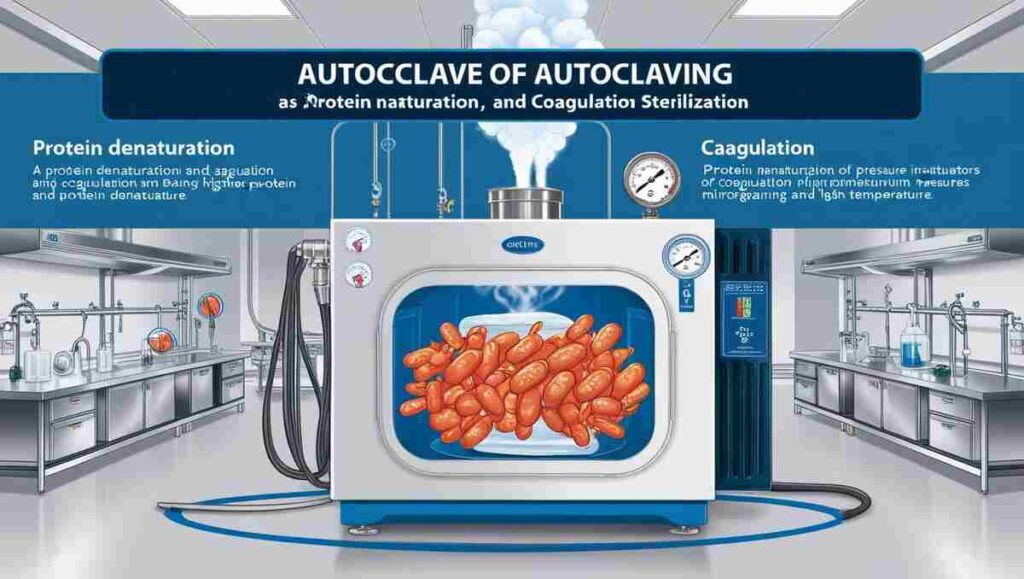Microbiology MCQ Question 201:-:-
The principle of autoclave is

(a) Oxidative damage
(b) Increased level of electrolytes
(c) Denaturation and protein coagulation
(d) Denaturation and oxidation
Show Answer
Ans: (c) Denaturation and protein coagulation ✔
Microbiology MCQ Question 202:-:-
Tuberculin test is an example of
(a) Type I hypersensitivity
(b) Type II hypersensitivity
(c) Type III hypersensitivity
(d) Type IV hypersensitivity
Show Answer
Ans: (d) Type IV hypersensitivity ✔
Microbiology MCQ Question 203:-:-
Endocarditis in a patient with colon cancer is caused by
(a) Staphylococcus epidermidis
(b) Streptococcus bovis
(c) Streptococcus sanguis
(d) Streptococcus mutans
Show Answer
Ans: (b) Streptococcus bovis ✔
Microbiology MCQ Question 204:-:-
Bacteria associated with dental caries
(a) Streptococcus mutans
(b) Streptococcus pyogenes
(c) Streptococcus faecalis
(d) Streptococcus galactiae
Show Answer
Ans: (a) Streptococcus mutans ✔
Microbiology MCQ Question 205:-
A food commonly associated with bacillus cereus food poisoning is
(a) Fried rice
(b) Baked potato
(c) Green beans
(d) Honey
Show Answer
Ans: (a) Fried rice ✔
Microbiology MCQ Question 206:-
Organism causing peptic ulcer
(a) H. pylori
(b) C. jejuni
(c) Cl. Tetani
(d) E. coli
Show Answer
Ans: (a) H. pylori ✔
Microbiology MCQ Question 207:-
Clostridium tetani is
(a) Gram-positive, non-sporing
(b) Gram-negative, non-sporing
(c) Gram-positive, spore forming
(d) Gram- negative, spore forming
Show Answer
Ans: (c) Gram-positive, spore forming ✔
Microbiology MCQ Question 208:-
ABO antibodies are
(a) IgG
(b) IgA
(c) IgM
(d) IgE
Show Answer
Ans: (c) IgM ✔
Microbiology MCQ Question 209:-
Contact dermatitis is
(a) Type I Hypersensitivity
(b) Type II Hypersensitivity
(c) Type III Hypersensitivity
(d) Type IV Hypersensitivity
Show Answer
Ans: (d) Type IV Hypersensitivity ✔
Microbiology MCQ Question 210:-
Streptococci causing neonatal meningitis
(a) Group-A
(b) Group-B
(c) Group-C
(d) Group-D
Show Answer
Ans: (b) Group-B ✔
Read more Nursing Related MCQs: